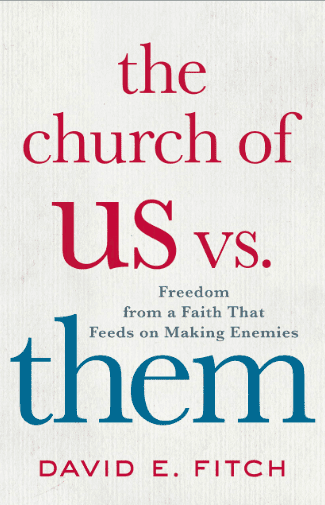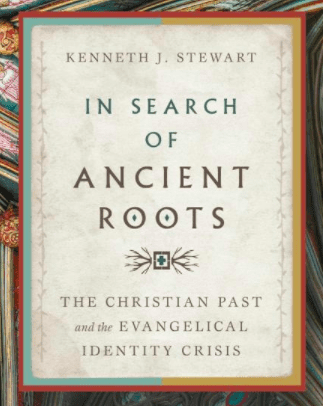 I am mourning this week as a fellow faculty member and long time (5+ year) attender of our church died last week, not in the fullness of age as we read in Isaiah 65:20, but at my age. He wasn’t a close friend, but he and his family had been to our house for dinner and we had been to theirs. We’ll miss him.
I am mourning this week as a fellow faculty member and long time (5+ year) attender of our church died last week, not in the fullness of age as we read in Isaiah 65:20, but at my age. He wasn’t a close friend, but he and his family had been to our house for dinner and we had been to theirs. We’ll miss him.
His department mourned his passing on the front page of their website. There are student testimonials and an on-line article in the student newspaper and in the faculty-staff daily newsletter. An e-mail was sent to students and faculty in his units.
At our church the only mention was a small print acknowledgment under prayer requests on a hand-out. Nothing was said publicly at all. I contacted the pastor and was told this was an oversight. But nonetheless the difference in response struck me. As member of a secular institution his death was mourned publicly, as long time attender of a church of ca. 500±100 his death was essentially unacknowledged.
I don’t want to come off as too critical. Our church does many outstanding things. In addition, the church has come alongside the family in many important ways. Here I am concentrating on a more public display of oneness with those who mourn. And I realize as well that our church falls in the center of current mainstream evangelical practice – where “dream big” and “too personal” are seen to run in counter propagating directions. Scot mentioned in a post last year (How the Church Has Changed) that in the last 10 years of speaking in churches he can count on one hand the times he’s heard a genuine pastoral prayer. Our church is no different. Without the pastoral prayer it is not clear where acknowledgment of death fits into a worship service.
On the other hand … We acknowledged and mourned in our worship service several weeks ago the public, but largely impersonal and distant, tragedy at Sandy Hook. We prayed for the families. And rightly so. But we did not mourn publicly in our worship service the death of one of our own, or pray for his family.
Scot linked an article by Roger Olson in Weekly Meanderings a couple of weeks ago where he reflected on what he feels the church has lost Have American Evangelicals Become Secularized? :
But my point isn’t just to express my nostalgic feelings. It seems to me our evangelical Christian communities in America have lost something precious—not just by abandoning Watchnight Services. That’s just a symptom of a larger abandonment. When I was growing up, at least in evangelicalism, your church was one of your extended families. You looked forward to being with your church family, eating together, having fellowship together, sharing triumphs and tragedies and prayer requests together, praying together. Now, for the most part, anyway, even in evangelicalism, “church” is Sunday morning worship only. For some it also includes Sunday School, although that’s gradually dying out, too. Many churches have attempted to fill the “fellowship gap” with a small group ministry, but in most such churches only a minority of the members are involved and these groups tend to fall into an affinity pattern (“birds of a feather…”). Children are usually not part of the small groups. I have doubts about whether the contemporary manifestation of small group ministry in churches really fills the gap left by the demise of events such as Watchnight Service.
…
So what am I suggesting? A return to the 1950s? Well, not exactly. Yes—in the sense of recovering in new ways the sense of community American evangelical churches had then. Real spiritual community necessarily includes availability, transparency, and accountability. No–we don’t have to return to Watchnight Services to recover those. But we do need to create new ways of filling the “fellowship gap” left behind by the demise of such intense events.
The church as extended family Roger Olsen wrestles with in his post is sometimes today branded “Country Club Christianity” – an insider club that limits the size of a church and prevents the spread of the gospel because it engages in insider activities. At times it could exclude outsiders, so there are valid reasons to revisit some aspects. We need not and should not return to the 1950’s or 1960’s or 1970’s or even the 1980’s. There was no golden age to which we should return – we must move forward. On the other hand when we fail to publicly mourn with and pray for those among us who mourn perhaps we have gone too far. I may be in the minority, but I miss the pastoral prayer.
This leads me to questions I wrestle with these days – Why Church? Why do we need the church in our Christian life? What value does it bring?
In 21st century America church is not, it seems quite clear, an extended family. It is less clear, to me at least, what church is or should be, what place it actually has in our spiritual life.
Is church a place for teaching? Our preacher is very good. But he is, of necessity, aiming at a broad audience and wants to be seeker sensitive. I can find preaching and teaching online, both free and for a fee, that does a better job of hitting me where I am. As a Christian, in the church for five decades, who reads and studies and writes, a general audience sermon doesn’t add much value in and of itself. I can’t say I’ve ever gone to a church specifically for the preaching.
Is church a place for worship? I may be odd here – but a spectator experience listening to a young adult worship band doesn’t do much for me. I can get the spectator experience in a way that better matches my taste in a variety of other forms and places. Church is, I think, a place for corporate participatory worship of our God. But this is not the current trend. We used to have participation – in the churches of my youth up through a few years ago – with people from 7 to 70 involved through choirs and Bible reading and special music and more. But participatory worship is going the way of Watchnight services and Sunday School.
Is church a focal point for small groups? Small group relationships are valuable. Very important in fact. But need these be centered in a church? I know a number of small groups begun in some format, hanging together as the individuals move in and out of different churches. And house church can do just fine for many. We don’t need much of the church for small group fellowship.
Is church a place for social action? Many churches are involved in social action – a very good thing. But I can give to World Vision, local women’s ministries, Samaritan’s Purse, and more without going through a local church.
Is church an evangelistic mission? Perhaps the primary purpose of a church is to provide a focal point for evangelism, to precipitate decisions. But does this mean we should seek out a church that will reach our peers? Church is a utilitarian tool we use for facilitating our personal evangelistic missions? The growth of Christians themselves should come through self-feeding outside the walls or community of the local church?
Is church a tool we use to provide religious education for our children? Some who chart the behavior of 20 and 30 somethings claim that people return to the church once they have children of their own. Many feel that church brings something of importance to the family. But if church is a utilitarian tool to provide religious education for our children, is there any reason then to remain once the children have grown?
Is church an outreach mission? We are in a University town. Many of the churches around, including ours, have an intentional outreach to University students. We provide lunch, fellowship, discipleship and extra worship opportunities (my husband has suggested a laundry service to make us truly popular). Our church does a fantastic job with undergraduates. Are we to search out churches that either fill our need or provide opportunities for the mission to which we feel called?
This has become something of an existential question. And death brings another light on the question. Is church a place where we live, grow, fellowship, and worship together in sickness and health, sorrow and celebration? Or is the role of the church in the times of trial limited to pastoral care and a facility for the funeral? Again, the church as a utilitarian institution.
I would like to finish with two reflections. First, I am a Christian professor today because of Church as extended family. When I struggled with the kind of deep questions and doubts common to so many, especially within secular academia, it was church as extended family that kept me connected. Sometimes the connection was a bit like an invisible fishing line with lots of room to run (and at times I took it pretty far). At other times it was a lifeline with a ring at the end and I held tight with both hands to keep my head above water. (Of course, many of my secular colleagues would claim I have simply been unable to throw off the brainwashing of my upbringing.) I remember to this day many of the adults from the church of my youth, as well as friends throughout the years. We are poorer when we lose the church as the extended family of the people of God.
Second, I remember as if it were yesterday one worship service from back in the dark ages, the mid 1990’s. We were a young family, relatively new at the church we still attend. An older woman in the church was dying of cancer (probably not significantly older than I am today, however). She was not expected to live out the morning. I never really knew her – but I could tell you her name (or make a good guess) even today. As part of the service (the pastoral prayer I am sure) we prayed for her and her family. Then the choir sang the song I link below. In my heart and memory our choir was better, although smaller – but the same mix of ages from graduate students and medical students in their early 20’s to gray heads. This was the kind of place, an extended family of sorts, where we wanted to make our home and raise our kids.
Rest in Peace. We’ll miss you.
What is the church?
If you wish to contact me directly you may do so at rjs4mail[at]att.net.
If interested you can subscribe to a full text feed of my posts at Musings on Science and Theology.











